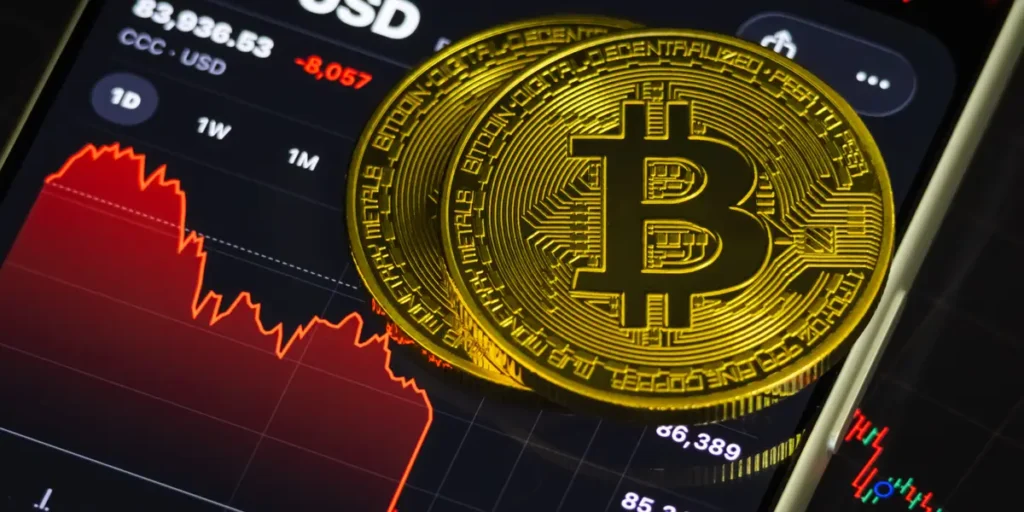Significant price drops are nothing new for bitcoin investors. This highly volatile digital asset tends to serve as an indicator of risk appetite and liquidity, diving when investors become cautious about macroeconomic or market risks.
But bitcoin’s current decline, which now stands more than 30% from its recent all-time high, is different from previous declines and may be more difficult to overcome, Deutsche Bank analysts wrote Monday.
Deutsche Bank cited a few factors that distinguish the current bear market.
“Unlike previous crashes, driven primarily by retail speculation, this year’s downturn has occurred against a backdrop of significant institutional participation, political developments and global macroeconomic trends.”
The first big thing the bank reported is that adoption has stalled. According to the bank, crypto usage has fallen to 15% of retail traders, compared to 17% this summer.
This is important because the growing adoption and usage of Bitcoin is one of the fundamental drivers of its bullish case.
“Crypto’s underperformance also resurfaces our ‘Tinker Bell Effect’ theory that Bitcoin valuations depend in part on belief-driven adoption,” analyst Marion Labore wrote Monday. “During this correction, the ‘Tinker Bell effect’ is predominant, as sentiment-driven selling has reinforced the price decline.”
The second reason the latest drop might be different is that institutional investors are now exposed to bitcoin through ETFs. The first Bitcoin ETFs were approved in January 2024, triggering a 600% surge in the asset. This is the first drop of at least 30% in the price of Bitcoin since the funds began trading.
Although institutional participation has driven gains over the past two years, it is this same exposure to bitcoin that has also contributed to a feedback loop of declining liquidity and increasing sales, DB said.
All of this means it could be harder for the supreme cryptocurrency to dig itself out of its latest slump.
“Decreased liquidity in Bitcoin order books has limited the crypto’s ability to meaningfully recover from macro headwinds,” Deutsche Bank wrote. “Whether Bitcoin will stabilize after this correction remains uncertain,” Labore added.
She continued: “Going forward, the maturation of Bitcoin will likely continue in stages. Greater regulatory clarity – particularly through recent reforms to crypto market structure – could support institutional trust, while the adoption of stablecoins by large institutions could strengthen market liquidity.




